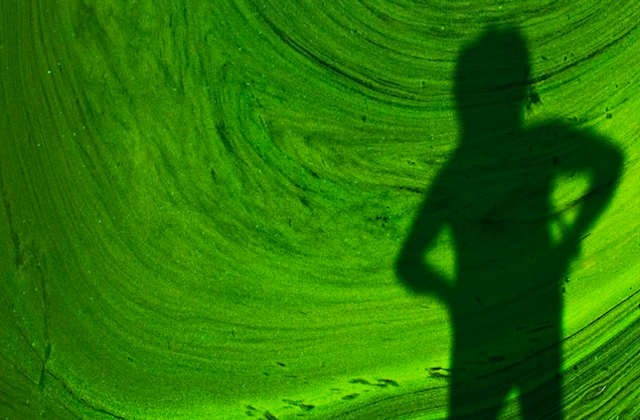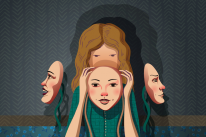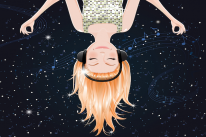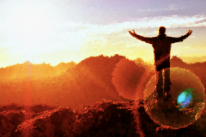
“Whenever something negative happens to you, there is a deep lesson concealed within it.”~ Eckhart Tolle
For much of my life, I was ashamed of how my classmates perceived me in my youth.
My chagrin and regret began in the spring of my senior year in high school when I opened our yearbook for the first time.
The seniors got center stage in the yearbook, as usual, with a big picture of each of us along with a four-year list of our activities and awards. I was proud of my list of five sports, especially my letters in wrestling and football and my participation in the choir and the boy’s quartet.
Next to each senior’s picture there was also a short, affectionate phrase describing the essence of the person.
Judy Johnson: Dainty and neat from head to feet.
Clayton Thomas: To be liked by all in this age and day is the highest compliment we can pay.
Anna Mae Westphal: Who could ask for anything more?
Ah, my best friend, Don Denkinger: Never a dull moment.
I turn to Gary Stokes, and there I am in my gray flannel suit, shirt, and tie. I am not smiling in my picture, but gazing off stoically into what?—my future, perhaps. My descriptive phrase: Reserved pessimist.
It was the only negative description in the senior pictures. Of course I checked to make sure. One negative description embedded with 124 positive descriptions.
I Wonder Who I Am
I was angry with the yearbook editor, a long-time classmate and neighbor. Maybe she had not written my description, but she approved of it. So did the faculty sponsor.
I was embarrassed but never complained to them. Instead, I held a grudge against them and sustained it well into adulthood.
I mulled over those two words for years.
Reserved. Pessimist.
Maybe this was the first of the many challenges to my ego that I would encounter over the next few decades, challenges that would help me learn, develop, and become my true self—a magical being.
But at eighteen, I couldn’t figure it out.
Was I reserved? I didn’t see it. I had friends. I liked most people. I had a beautiful, brilliant girlfriend who would very soon be my wife when we ran away and got married six months after high school graduation. My read on myself was that I was an ordinary, friendly guy.
Was I a pessimist? This appellation was even harder to figure out. I didn’t worry about the future. I didn’t think things would turn out badly.
I examined myself, but I couldn’t see any reserve or any pessimism.
I finally concluded that someone on the yearbook staff didn’t like me and wanted to give me a jab. Ouch. It worked.
So, did I discover as an adult that I am by nature reserved—difficult to know in some way—and that I am by nature pessimistic, throwing cold water on hopes about how people or things will turn out?
The Yearbook Signaled the Need for Some Introspection
I would eventually have to face some pretty negative things about myself.
In several marriages I would discover that I had built up some armor around my lack of self-esteem.
I was the most well defended person she had ever met, one of my wives told me.
I wasn’t able to admit my fears, so I hid behind a mask of supreme confidence. Some, no doubt, experienced me as reserved, difficult to know.
To boost my own ego, I was often critical of others. I became expert at dissecting the personalities and faults of those around me. In spite of the fact that I was a successful national leader in my field, I needed to assert my superiority continuously.
Those closest to me may have heard my criticisms as expressing a fundamental pessimism about the lives of my fellow human beings. At times they objected to my criticisms. I countered that I was merely describing others accurately.
In other words, I was a real human being and also a false human being—a complicated mix of ego and authenticity made up of love, passion, vision, competitiveness, cockiness, self-pity, and victimhood.
If there had been a mid-life yearbook, the summary next to my picture might have been “He may be a warrior, but he still makes mistakes.”
I Learn That I Am, and We All Are, Magical Beings
Over time, I was able to see the magical being behind my fears and ego disguises and able to see the magical being that everyone else is as well. How are we magical beings?
- Each of us is a perceptual dynamo, our bodies a master work of sensitivity, able to examine our lives, learn, change, and emerge into our full powers.
- We are the most conscious beings in the universe, as far as we know, the only creatures able to explore the cosmos, peer back into its origins, and begin to explain how it works.
- We are the only creatures who can laugh at ourselves, create comedies for each other, and find delight in almost anything.
- We are able to love, each of us able to nurture other human beings, able to intuit and imagine the needs of others and to create the support and understanding they need for emergence.
Ah, I am a magical being and so are you.
How to Become a Magical Being
My journey from reserved pessimist to magical being has been full of detours, bad maps, accidents, and late arrivals.
But it has also been a journey of discovery, wonderful surprises, breakthroughs, and heavenly destinations.
Looking back on my discovery that we are all magical beings, I see these key milestones in my learning. If you’re also feeling disconnected from who you really are, these steps may help.
1. Identify and confront the fears behind your front.
My long-term fear: I was afraid that I couldn’t be loved, that somehow I wasn’t likable enough and attractive enough. Didn’t my yearbook spot this problem early? Didn’t my recent divorce provide more evidence?
I devoted every day to stalking my fears. Instead of avoiding them, as I had always done, I sought out opportunities to confront them, test myself, and learn. It was an exciting time, as I opened myself to intimate relationships in a new way. I gave love without worrying about it being returned and I saw that there was nothing to fear.
One joyous day I realized that I was no longer afraid of anything. That day my love of life flowed without reserve.
You can overcome your fears. They are phantoms and will evaporate with your scrutiny. Muster your courage, identify them, go looking for them every day, and confront them. You will discover that your fears were simply bad explanations for what is going on.
2. Acknowledge self-pity and victimhood.
I was still vulnerable to having my self-importance pricked by others. Hiding below my ego’s need to be respected, I saw my self-pity.
My victim stories always followed a pattern—criticizing the person who had challenged me in some way.
With the help of a loved one, I stalked my self-pity like a warrior hunter until I exposed my ego for what it was—a false self. And then I laughed, full of optimism about life without pretense.
Notice how the ego gets angry, irritated, and resentful, always creating the bad explanation that someone or something outside yourself is creating your life. Dump the ego and fly free. You’re a magical being capable of creating the emotions you want to feel.
3. Learn how to sustain poise, no matter what challenges face you.
I discovered that my full powers are available only when I am present, connected, grateful, creative, and light hearted. Poise is the state of consciousness I choose every moment.
Poised, I live a vibrant life of joy and practical advantage.
In your magical state, you can transform every challenge into opportunity, adventure, and valuable learning. Welcome the challenges, embrace them, and say yes to them. Remember, magical beings are creative dynamos.
The Reserved Pessimist Wasn’t Real
Had my high school yearbook writers been more prescient about me than they were, they might have said: “He doesn’t know it yet, but he is a magical being.”
We all are.
Photo by rohit gowaikar
About Gary Stokes
Gary Stokes maps the universe of poise on his blog www.thepoisedlife.com. His book, Poise: A Warrior’s Guide, is a profound exploration into the nature of poise, how we lose it, and how we can sustain a sublime state of consciousness.













 Though I run this site, it is not mine. It's ours. It's not about me. It's about us. Your stories and your wisdom are just as meaningful as mine.
Though I run this site, it is not mine. It's ours. It's not about me. It's about us. Your stories and your wisdom are just as meaningful as mine.
hi Gary – a wonderfully written and honest post. I cannot imagine having those words written in print on something that we hold onto so dearly in our lives – our yearbooks. So, I believe the effect and impact it had on your life. But I also appreciate how you look beyond those words and used those words as a catalyst to do the inner work that came after. I also enjoyed your tips on how to confront fear – “your fears are simply bad explanations of what’s going on.” Often, we don’t find out about the truth of our fears because we run away from them. But by confronting and taking them on, we see our fears for really what they are.
Thank you for sharing this magic and your journey to your highest truth and self.
Excellent read my friend, I will be reposting it to my FB drug recovery page. Many addicts are caught in the I’m not good enough, or I’m different mode of thinking for a life time of pain.
A powerful Gary! I relate you journey, my fear was that I was not good enough and it reflected in everything in my life. My journey was also “full of detours, bad maps, accidents, and late arrivals.” Then there were the magical moments. I like your tip to “dump ego and fly free.” It is too easy to hide behind the victim or self-pity. Once released it is gone. Thanks for the honesty in this article.
Excellent piece, Gary. A favorite of mine! Love your blog too. Thank you so much for writing this.
Great tips, Gary, and I love your high school story! I have often times let my ego rule my life – picking jobs, relationships, etc. that my ego craved. Doing this is taking the path away from happiness though, and day-by-day, I’m trying to break free of these habits. Thanks for your insights!
I liked how you structured the text Gary, you mix concepts of awakened consciousness and content marketing very well. Best wishes!